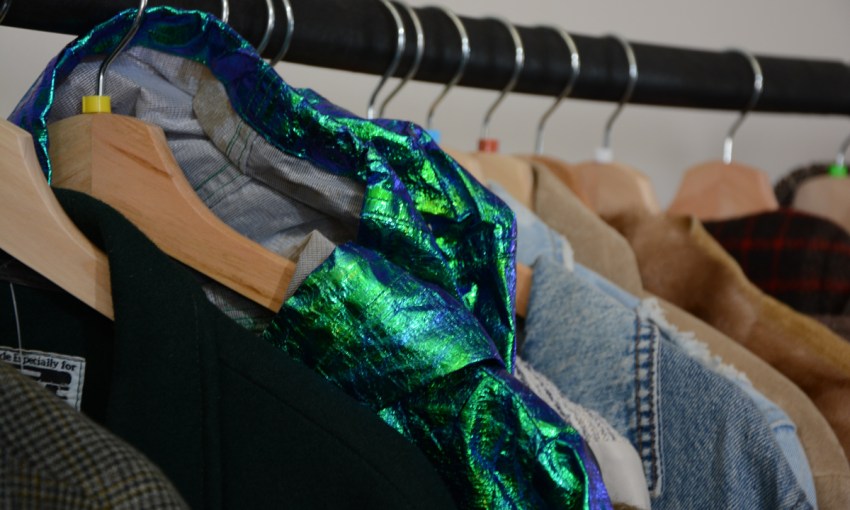To walk past a Salvos donation bin on any given morning is to bear witness to the excesses of our sartorial pursuits. We stopped in to a few local sustainable fashion shops helping us feel better about looking good.
Bring it all back
French Laundry
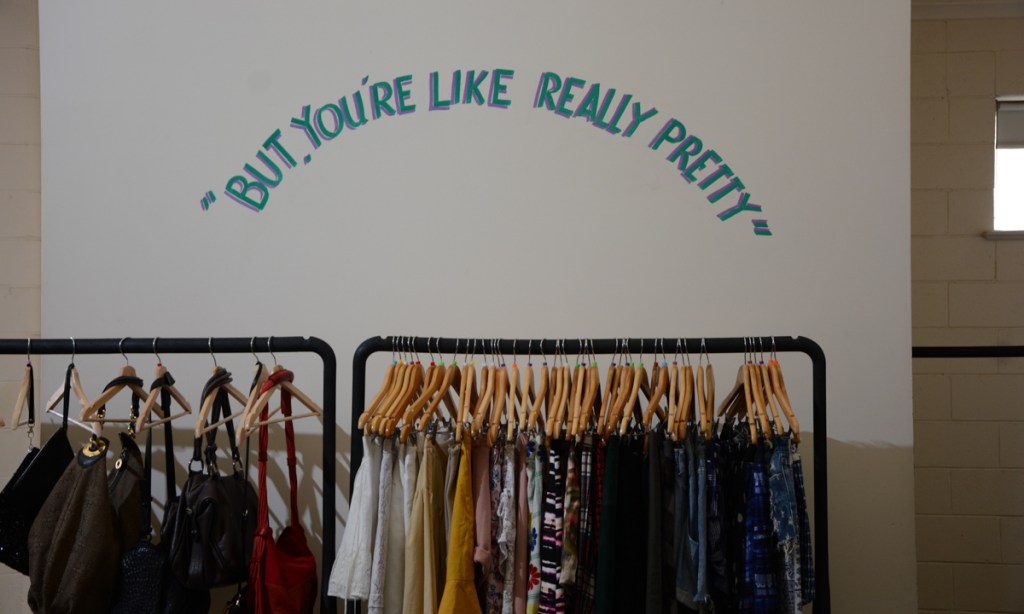
When CityMag walks through the doors at French Laundry, we assume Mia Crescitelli is chatting away with friends. There’s familiarity in their conversation, but they leave each other with “Nice to meet you”.
The rent-a-rack on Gray Street holds a bevy of pleasingly colour-coordinated garments. Mia is all about the aesthetics. She wants the shopping experience at French Laundry to veer from the chaos of sifting through piles of thrifted items into something more serene.
And it is that, with a little quirk thrown in for good measure. The scented Glasshouse candles sit harmoniously with a trio of disco balls suspended from the ceiling.
Overlooking the racks is a shrine-like tiled portrait of Paris Hilton. There’s one of Lana Del Rey, too.
“It’s all about the smell and the look,” Mia says.
“I’m very sentimental, so I’ve filled it with things I love.”
On an expanse of white wall, Mia projects her favourite films and shows. Today, it’s The Devil Wears Prada. And perhaps even the film’s sharp-tongued fashion magazine editor Miranda Priestly would appreciate some of the items hanging in Mia’s store.
Renters pay to hang their wares on the racks at French Laundry, but not everything brought in is accepted onto a hanger.
Mia has to be discerning about what makes it onto the shop floor. She politely turns down the cheap fast-fashion labels, encouraging their owners to take the garments to H&M, where they offer a recycling program.
“They’ve bought it and it’s fantastic that they want to move it on and I’m encouraging them not to put it in the bin, but I do try to educate them about why we don’t buy those brands.
“It’s all about keeping it circulating and going around. I read the average Australian buys 27 kilograms of clothing and textiles a year and disposes of 23 of those.”
Mia’s gentle attitude comes from a place of empathy. “I remember when I was younger, buying a $20 dress to go to a nightclub, throwing it out the next day and going to buy another one.”
Opening French Laundry has made Mia rethink the way she shops. Sitting on a blue velvet ottoman in front of full-length mirror, she’s clad in Stephanie Chehade trousers. She does still buy new pieces, but the desire to shop purely for a kick has disappeared.
At traditional rent-a-racks, the renter has a designated space, leading to a hectic mismatch across the store, but at French Laundry, garments are organised more logically, allowing shoppers to sift through winter coats, a favourite colour palette or formal dresses.
A draw for rent-a-rack shoppers is the chance of discovering a rack that serendipitously mirrors your own size and style. Mia has been able to retain that opportunity for discovery, while maintaining the store’s aesthetic.
At the end of the renting period, Mia gives renters the option of donating to Dress for Success, which provides professional clothing to women who may not have access to it.
It was a greater search for meaning that led Mia to start French Laundry – she’d had a long career in hospitality working at her godfather’s restaurant, La Trattoria, then for a not-for-profit, and back to managing the restaurant when she found out she was pregnant with her fourth child.
“When I had bubs, I had to figure out what life would be like. I love fashion and the sustainability aspect and I wanted to focus on service,” she says.
Dear Lloyd
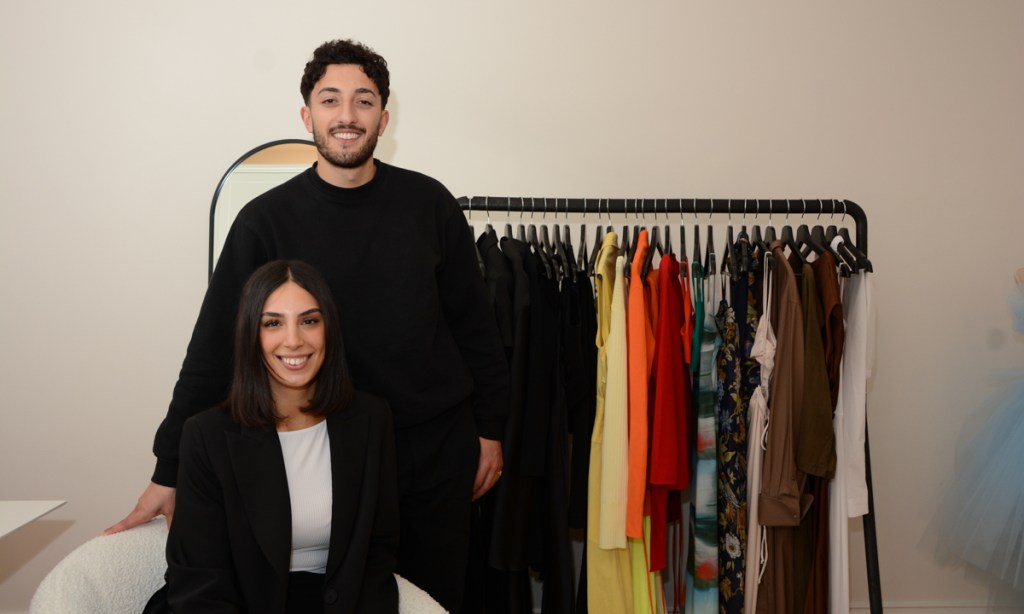
Event season and sustainable wardrobe practices don’t always go hand in hand, but if you’re happy to share nicely, Adelaide fashion-hire business Dear Lloyd can help.
Adelaide couple Saba Maghsoudi and Maddison Tarzia (above) launched the online platform after Maddison experienced a price shock while shopping for a dress for her sister’s engagement party.
“I found a gorgeous dress and it was $600, but I thought, for a one-off event, is it worth it?” Maddison says.
Maddison tried hiring the dress and she found “there were so many obstacles”.
“I thought, I wish this was more readily available in Adelaide in clothing that suits my tastes,” she says.
Maddison’s quest to find the dress was Saba’s first foray into the world of fashion hire. He jokingly asked his girlfriend why she wasn’t hiring out her own clothes. It got the pair thinking about the gap in the market and how their own skills could fill it.
Maddison, a speech therapist, had recreational online shopping experience in spades, and Saba’s design and marketing background could enhance the idea into a rounded experience.
“We wanted to design a website that feels like you’re shopping at your favourite designer store and when you come into the studio to try on our hire garments, you get the same feeling you would when buying a new outfit,” Saba says.
What Saba and Maddison have created allows shoppers to feel as though they’re not missing out on all the things that make shopping fun.
First comes the browsing (a click through to the website), and then customers can book half an hour to try on pieces from within a beautiful beachside home.
The capsule collection hangs neatly in a bright, white room punctuated by the odd bold hue on the rack. The labels on show include Anna Quan, Alexander Wang, Bec + Bridge, Jacquemus, Camilla and Marc and Scanlan Theodore.
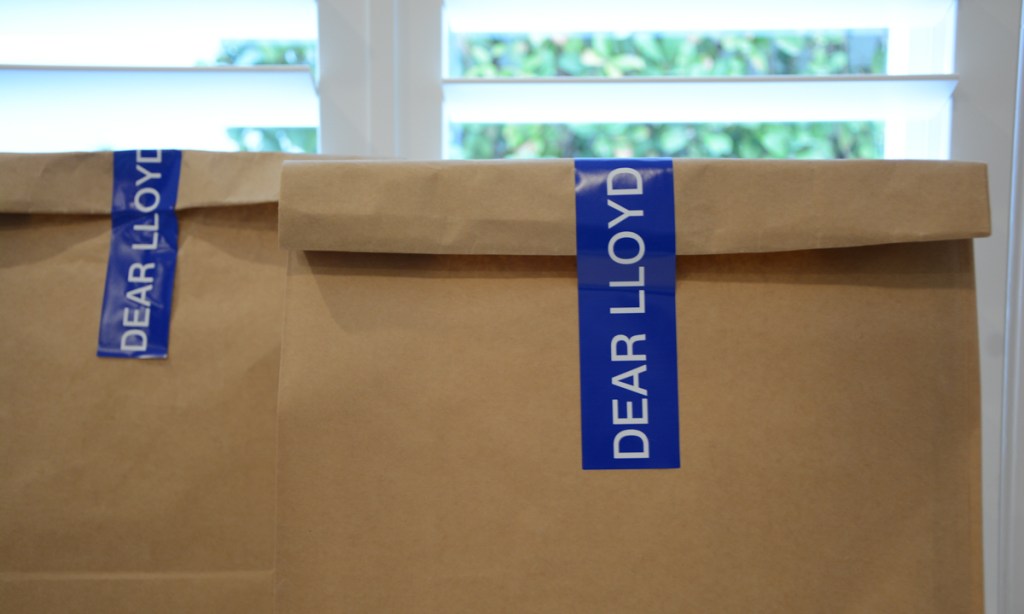
It’s a tightly curated capsule collection, but the pair say this year – their first in operation – is all about upping that number and expanding the size range. It currently caters to sizes six to 12.
Maddison’s happy to provide help where it’s wanted, offering something akin to a personal styling session. It’s all the encouragement shoppers need to veer away from spontaneous, expensive purchases and choose more ethical, sustainable options.
“I think now, everyone’s knowledge of the conditions around fast fashion and how it’s affecting the industry has made it something people don’t really like to indulge in as much as they used to,” she says.
The price point is also an enticing factor. Hire starts at $85 for four days over weekends and peaks at $160 for a dress that was originally $950.
“I’ve been a student for the past four years and I could not afford to have a $400 dress every weekend,” Maddison says.
“It’s nice to be able to provide people who don’t want to support fast fashion with another opportunity.”
Sustainable Clothing Co.
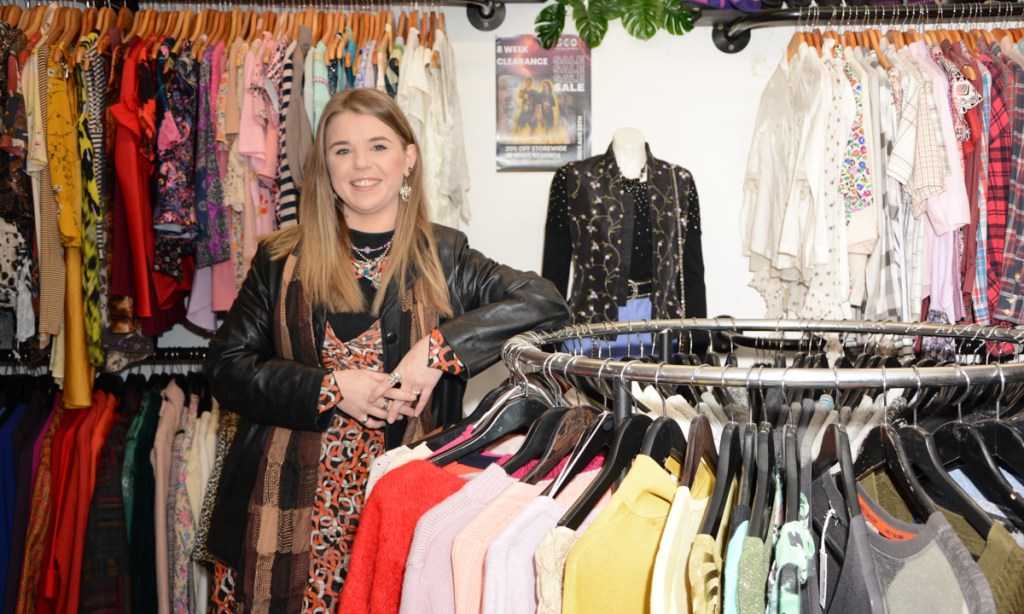
At a new frontage on Charles Street, Laura Vogt (above) keeps a treasure trove of vintage finds scoured from markets and preloved clothing sales.
Her personal connection to each piece is clear. Laura wanders around the store, pulling out a dress or jumper and telling us where it came from and what makes it so special.
There are band t-shirts, iron-on patches and boxes of vinyl records. A glass case holds Barbie shoes repurposed into earrings. Among the racks, there’s a dress from the ’80s that Laura has her eye on, a cute Japanese handbag and a pair of leggings with sharks on them.
Laura has an affinity for both the ’80s and ’90s, and growing up in the early 2000s means there’s also a strong influence from that era in the shop.
“I think the beauty of vintage clothing is you can mix and match all of the eras,” she says.
“Second-hand clothing in general is something I’ve always enjoyed searching for – the thrill of the hunt and finding something different.”
But Laura doesn’t only stock vintage. She also tracks down deadstock to ensure it’s not discarded into landfill. She points to a rack of hemp and organic cotton items from Adelaide and Australian brands. Laura has spent nearly a decade collecting and reselling clothing, initially inspired by people like Lady Gaga.
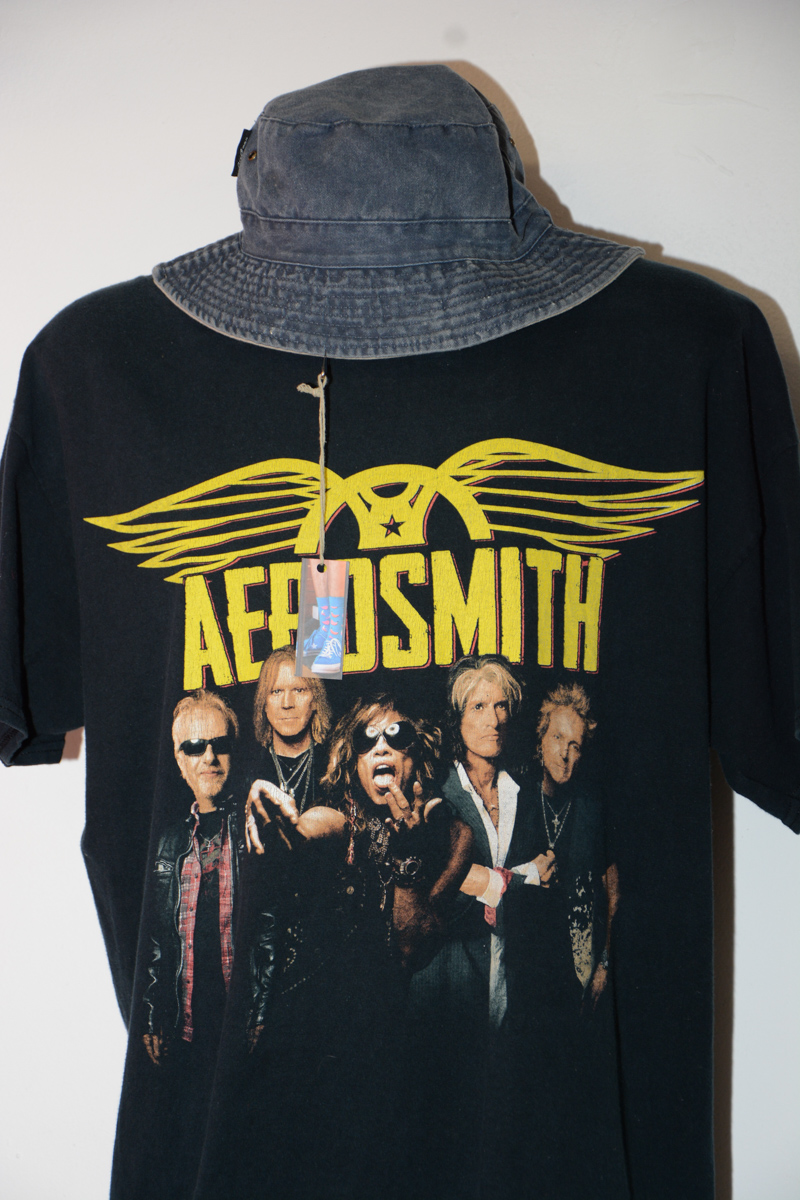
Early on, she found a niche buying second-hand clothing and cutting, ripping and redesigning it into festival wear. A rack dedicated to handmade festival threads in-store today nods to those early days.
Laura lives by the philosophy that getting 30 wears out of something makes up for its environmental impact. “I think it’s really important to recycle the clothes that have already been made,” she says.
In the Flinders Street Market, Laura runs clothing swaps for the community; it’s $5 and you bring five items. It helps you clear out things you no longer want and give them a new life.
At the end, nothing goes to waste. Anything left over goes to women’s shelters and crisis centres, while anything unwearable gets recycled into rags, pet bedding and insulation.
“There are so many garments out there that we need to utilise and upcycle and recycle,” Laura says.
“It’s so important we keep that ball rolling and stop producing so much.”
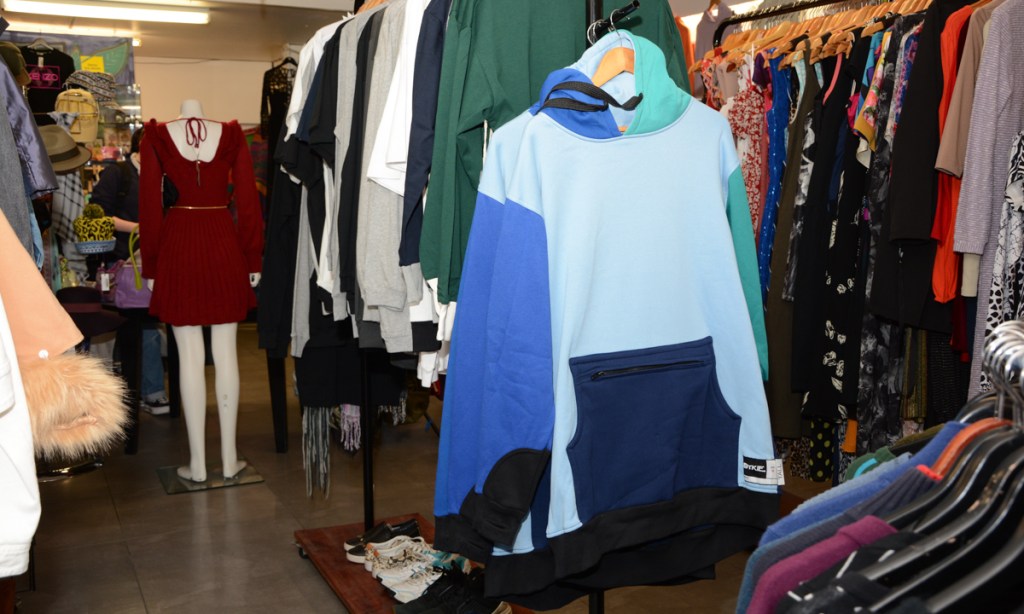
She believes sustainability doesn’t have to be black and white. If you like a piece of fast fashion and you’re going to get those 30 wears, go for it, but live more sustainably in other areas.
“Everyone can do their own little bit and contribute and when everyone does that, it makes a difference,” she says.



